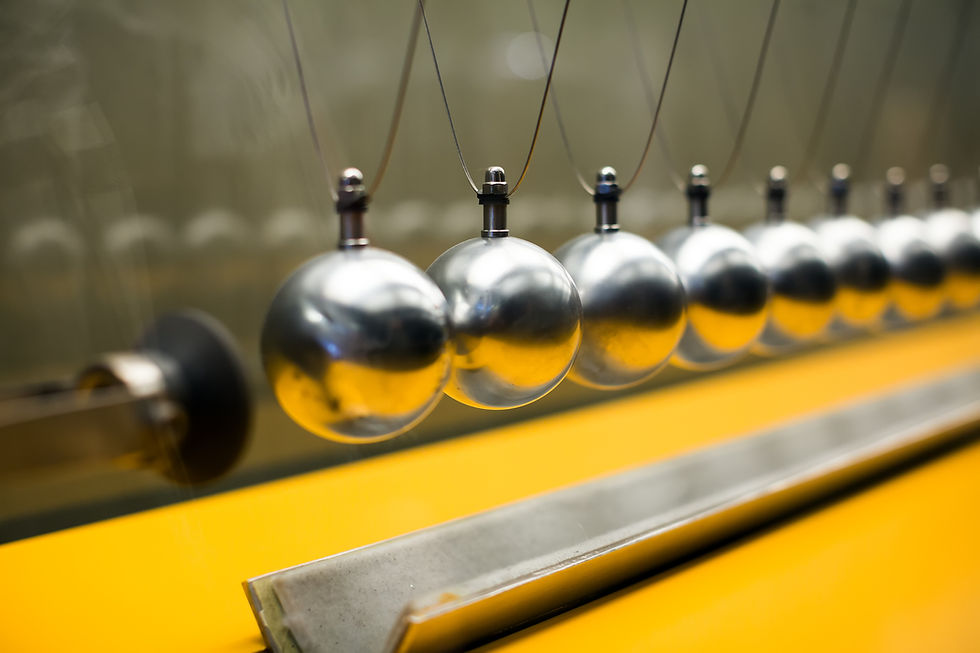Impact on Your Wellbeing of Insufficient Sleep
- Swatej Amanaganti

- Feb 4, 2021
- 3 min read
Updated: Mar 4, 2021

Feeling dizzy or tired? Always slacking off in school or getting bad grades? Well, one of the primary reasons for your lack of productivity is your sleep and your sleep schedule. Sleep is one of the most essential elements of a healthy lifestyle and can also affect your productivity in school. One of the biggest reasons why students are falling behind in their classes is because the average high school student sleeps around six to seven hours a night, while the more productive and higher scoring students sleep around eight to nine hours a night, which is the recommended duration of sleep. There are many reasons why sleep affects productivity, but it is important to understand the basics: your mind.
Sleep is important for the mind because it allows the brain to rest and let your body relax. Sleep occurs in several stages: Light Sleep, Deep Sleep, and finally, REM (Rapid Eye Movement). REM is the most essential of the 3 stages because this is the stage where you dream and start to drool. If you do not experience this sleep for at most an hour, that is a critical sign that your body is not rested or healthy. One of the reasons students cannot fall asleep is because of the workload teachers give out. While that is a major issue that cannot be solved or addressed to teachers, students should find a way to organize their schedules and maximize their priorities by identifying what is important and when you should have enough time to do certain activities.
Sleep deprivation is also why many individuals have either stunted growth or do not grow more than they are supposed to, as a result of inactivity of the HGH (Human Growth Hormone), which is supposed to be active during sleep as it gives the body time to heal and help with contraction and relaxation of the muscles. In order for teenagers to optimize their growth, it is recommended that they sleep for at least eight hours per night.
Caffeine is also another reason for sleep deprivation, which results in poor productivity in school. Caffeine makes energy levels spike and proves to be very unhealthy if consumed too much and/or too often. In order to get an optimal amount of sleep, you should avoid drinking coffee at least six hours prior to bedtime.
Your mind is an essential part of the body and without it being healthy or well-rested, there is no brainpower and the essential parts of the brain will not function. Sleep deprivation primarily influences decision making, as well as memory. Moreover, a study conducted by two research scientists, Clare Anderson and Charlotte Platten, concluded that without sleep, the brain begins to degenerate and the neurons, specifically dendrites, begin to branch off and begin to slowly fall apart, because of the amount of electrical energy the brain constantly moves around during insomnia. Electroencephalograms (EEGs), a measure of testing electrical impulses in the brain by placing wires on each lobe, were also given to college students who were having poor grades in some universities and the results from the EEGs were astonishing. What the two scientists concluded from this research was that the EEGs detected abnormal brain wave activity and poor electrical signals were being sent to the brain, so the brain was low on energy, implying that these particular college students for the study were not getting enough sleep.
Overall, sleep is one of the greatest and most critical parts of a healthy lifestyle and is essential for your learning and improving productivity in school. The best ways to ensure that you are getting the right sleep would be through planning your day, finding where your priorities are at, eating healthy, stop caffeine intake, and more.
Electroencephalograms, a measure of testing electrical impulses in the brain by placing wires on each lobe, specifically occipital and parietal lobes, because the visual cortex is closest. Once placing the wires, it detects the electrical impulses through the neurons and notices how the dendrites pass on the electrical energy to other neurons. The wires will sense abnormal brain waves and the amount of energy getting passed on through a unit of measurement called Hertz or Hz. If the wires detect low energy, that proves that the test subject suffers from insomnia, however, if lots of energy is detected, then the individual is getting good sleep.
Sources
Drake, Christopher, et al. “Caffeine Effects on Sleep Taken 0, 3, or 6 Hours before Going to Bed.” Journal of Clinical Sleep Medicine, 15 Nov. 2013, jcsm.aasm.org/viewabstract.aspx?pid=29198, 10.5664/jcsm.3170.
Peng, Ziyi. “Effect of Sleep Deprivation on the Working Memory-Related N2-P3 Components of the Event-Related Potential Waveform.” Frontiers, 2020, www.frontiersin.org/articles/10.3389/fnins.2020.00469/full#B17.



Comments